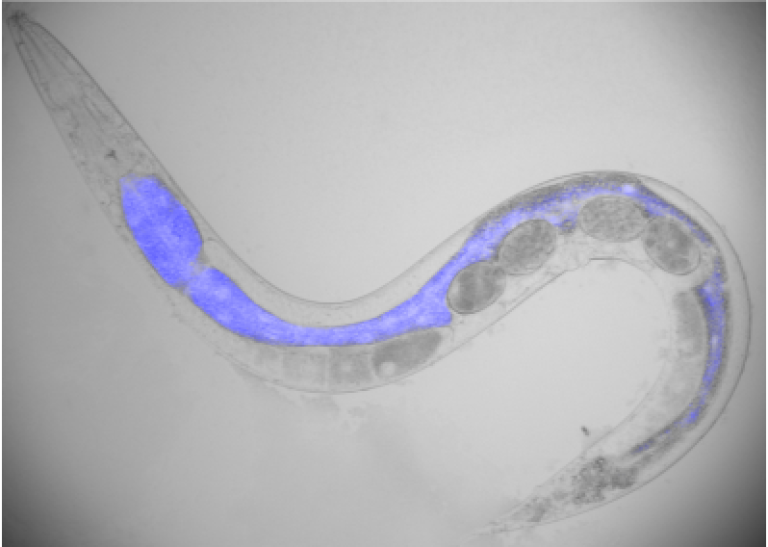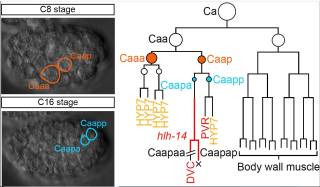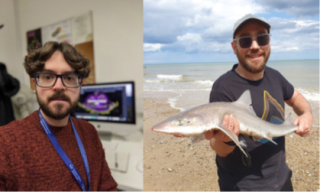Cell division, fishing, Latin and some far eastern languages - Richard Poole's lab combines all!
7 March 2024
Richard Poole’s lab at the UCL CDB has recently had a paper published in the prestigious journal, Development. Here, we reveal their findings - and links to fishing, and the Latin, Japanese and Korean languages!

The authors, comprising researchers from Richard Poole's lab, found evidence that key cell fate determinants have a previously unappreciated function in regulating unequal cleavage – and therefore cell size – of the parent cells whose daughter cell fates they then go on to specify. Their paper was featured as a Research Highlight and there was also a ‘People behind the papers’ interview (by email).

This paper, published in the prestigious journal, Development, sheds light on this question. As one reviewer commented: “The authors propose the concomitant regulation of neural fate and cell size as a general mechanism to ensure adequate neuronal size during C. elegans embryonic development, where cell growth mechanisms do not operate”.

 Close
Close

